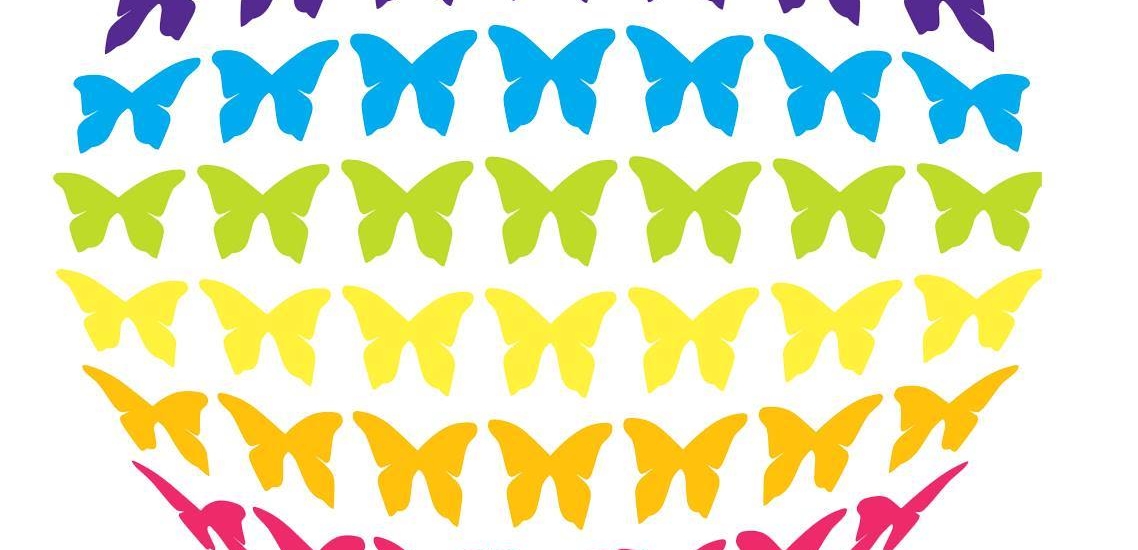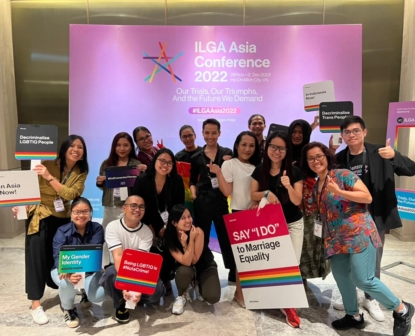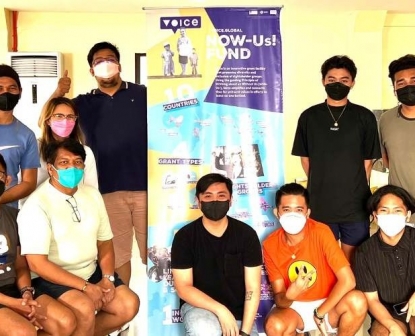Project
Building Rainbow Communities: Organising LGBTQI Filipinos in Rural and Urban Poor
-
Amount Funded
72,257 EUROProject Duration
01 Jun 2021 - 30 Apr 2024 -
-
Lead organisation
Babaylanes Inc.
-
Babaylanes is a non-government organisation formally established in 2008. It is mandated to serve as an LGBTQI resource centre by:
- Developing SOGIESC-focused research and LGBTQI-responsive policies;
- Providing expertise in LGBTQI issues and human rights education; and,
- Organizing networks for advocacy and campaigns.
It is the alumni organisation of the longest-running LGBTQI student organisation in Asia from the University of the Philippines, UP Babaylan. Babaylanes also serves as the secretary-general of Lagablab LGBT Network, a broad alliance of LGBTQI organisations in the Philippines seeking to promote the rights of the LGBTQI Filipinos through policies and legislation.
-
Organisation
Babaylanes is a non-government organisation formally established in 2008. It is mandated to serve as an LGBTQI resource centre by:
- Developing SOGIESC-focused research and LGBTQI-responsive policies;
- Providing expertise in LGBTQI issues and human rights education; and,
- Organizing networks for advocacy and campaigns.
It is the alumni organisation of the longest-running LGBTQI student organisation in Asia from the University of the Philippines, UP Babaylan. Babaylanes also serves as the secretary-general of Lagablab LGBT Network, a broad alliance of LGBTQI organisations in the Philippines seeking to promote the rights of the LGBTQI Filipinos through policies and legislation.
-
Project
There is already an organising presence from various LGBTQI groups in different parts of the country. However, what’s often highlighted or what’s often involved in policy changes at the national level are those mostly middle-class groups based in Metro Manila, the capital of the Philippines. Even among the network of LGBTQI student organizations, those established from rural universities are hardly sustained. This disparity in terms of access to state institutions, resources, and opportunities, grows further because of the COVID-19 pandemic, which took a hit on people’s political mobility, and the continuous withering of state institutions at the peripheries, which affects the quality of access of communities to social services.
Babaylanes Inc. comes in not as resource providers and sources of knowledge but as brokers–as facilitators of information, resources, opportunities, and even social relations. The organisation’s main objective is to address the disparity by bridging groups at the centre and groups at the peripheries and by initiating mutual exchanges of knowledge.
Their goal is to learn from the experiences– their strengths and needs— of two organisations, capacitate them and assist them in influencing their areas and integrate them into the broader LGBTQI network.
The change that Babaylanes wants to see is a national movement that fights for inclusion and progressive changes while leaving no one behind– making sure that inclusion and progress are not heavily concentrated at the centre. For a long-term and sustainable change, Babaylanes sees these organisations formally integrated into the broader network wherein the cross-learning experiences could continue. This also hopes that by being part of a larger collective and by being connected to allies in congress, organisations have more incentive to participate in and have more access to political terrains, given that state fragility, weak governance and surveillance, are the conditions navigated by those at the peripheries.
-
There is already an organising presence from various LGBTQI groups in different parts of the country. However, what’s often highlighted or what’s often involved in policy changes at the national level are those mostly middle-class groups based in Metro Manila, the capital of the Philippines. Even among the network of LGBTQI student organizations, those established from rural universities are hardly sustained. This disparity in terms of access to state institutions, resources, and opportunities, grows further because of the COVID-19 pandemic, which took a hit on people’s political mobility, and the continuous withering of state institutions at the peripheries, which affects the quality of access of communities to social services.
Babaylanes Inc. comes in not as resource providers and sources of knowledge but as brokers–as facilitators of information, resources, opportunities, and even social relations. The organisation’s main objective is to address the disparity by bridging groups at the centre and groups at the peripheries and by initiating mutual exchanges of knowledge.
Their goal is to learn from the experiences– their strengths and needs— of two organisations, capacitate them and assist them in influencing their areas and integrate them into the broader LGBTQI network.
The change that Babaylanes wants to see is a national movement that fights for inclusion and progressive changes while leaving no one behind– making sure that inclusion and progress are not heavily concentrated at the centre. For a long-term and sustainable change, Babaylanes sees these organisations formally integrated into the broader network wherein the cross-learning experiences could continue. This also hopes that by being part of a larger collective and by being connected to allies in congress, organisations have more incentive to participate in and have more access to political terrains, given that state fragility, weak governance and surveillance, are the conditions navigated by those at the peripheries.
-
Beyond Glitz and Glam
The Building Rainbow Communities (BRC) project was created to influence local government leaders to support and protect the rights of the LGBTQI community. Our project aimed to empower community-based LGBTQI organizations (CBOs) by facilitating their networking with local leaders and lobbying for LGBTQI-responsive policies and ordinances within their own localities. Our partner rights-holder groups, the Mariveles Rainbow Alliance (MRA) from Mariveles, Bataan and the Glamourosa Organization from Catarman, Northern Samar, participated in a series of trainings on LGBTQI rights, organizational development, and public policy lobbying. These trainings were crucial to ensuring that the CBOs were well-prepared, empowered, and formalized before advocating for relevant policies with their local leaders.
Once our RHGs completed the trainings, they proceeded to initiate the registration process with the Securities and Exchange Commission. This registration was crucial for legitimizing the existence of MRA and Glamourosa. It meant they had a greater chance of collaborating with and being heard by their local leaders. To demonstrate the impact of these initial activities, we would like to share Glamourosa’s lobbying experience in Catarman.
Initially, the councilors of Catarman did not perceive the urgency of an anti-discrimination ordinance (ADO) in their municipality. They believed their locality was already accepting of the LGBTQI community and free of discrimination. However, Glamourosa managed to persuade Councilor Daclag to draft and submit an ADO to the council. Afterward, Councilor Daclag presented the draft to the council and delivered a Privilege Speech to discuss its significance. When she shared this on social media, numerous community members reached out to her, emphasizing the importance of the ADO in their lives. Councilor Daclag expressed being deeply moved by these stories, which also helped her recognize the ADO’s tangible importance.
In addition to the councilor’s account, a student leader revealed that students from the University of Eastern Philippines (UEP) in Catarman were facing various forms of discrimination, hindering their ability to access quality education. Thus, he emphasized that the eventual passage of the ADO would serve as a crucial tool to safeguard the rights of LGBTQI students on campus, enabling them to study without fear of discrimination. Moreover, in cases where discriminatory acts still occurred, the ADO would provide students and other community members with access to mechanisms for protection.
Before the implementation of the Building Rainbow Communities project, Glamourosa was primarily involved in pageantries, livelihood programs, and Pride celebrations. According to their members, the BRC project allowed them to move beyond the glitz and glam of their typical pageantries and celebrations. The BRC project empowered them to advocate for the community’s needs in a manner that engaged local policymakers, potentially influencing the overall enhancement of the Catarman LGBTQI community’s social, economic, and political status. Furthermore, this outcome has the potential to promote a more inclusive, non-discriminatory, and equal Catarman.
-
News





